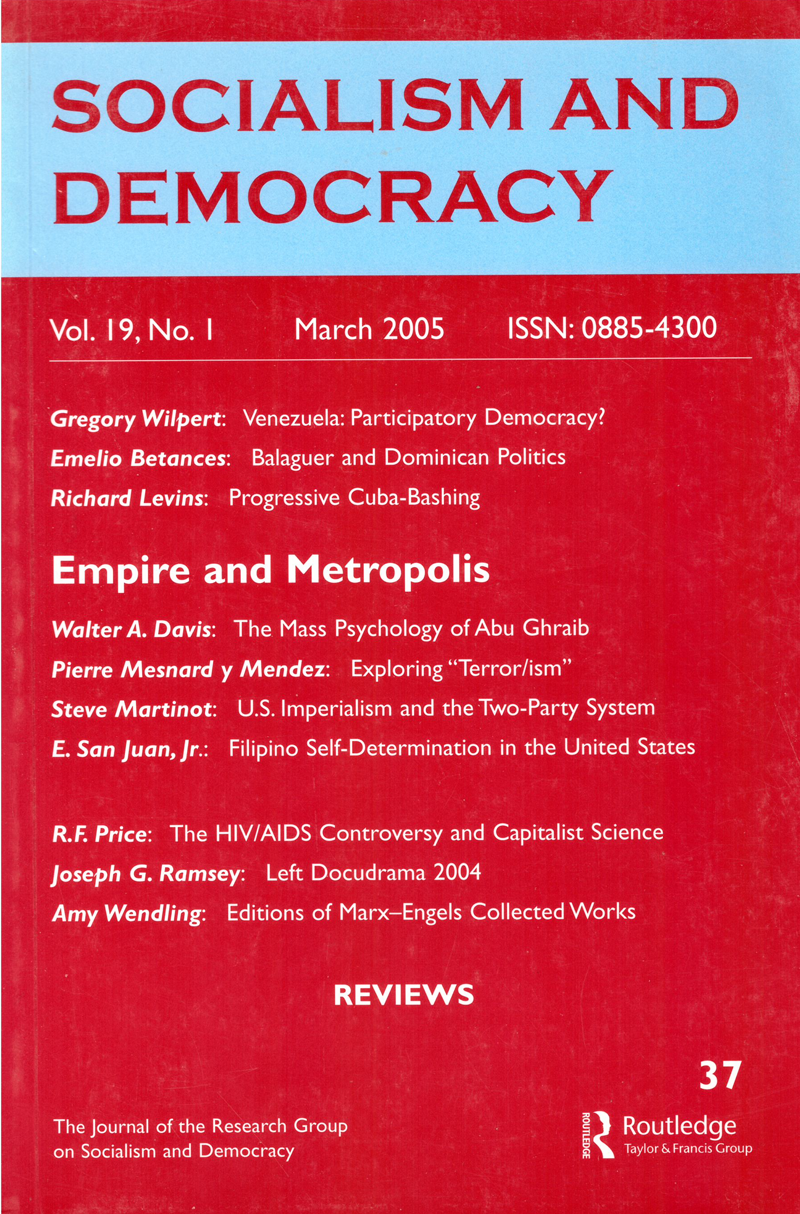R.F. Price makes several salient points concerning the scientific claims surrounding HIV and AIDS. In this regard, I am pleased that my essay could serve as his starting-off point, so to speak. Price is certainly correct in criticizing me for unqualifiedly adopting the much-disputedclinical definition of AIDS as well as for disregarding the active debate around the link between HIV and AIDS. Indeed, while I do not consider myself qualified to comment on the underlying medical science, I consider the work of Duesberg, Papadopulos-Eleopulos and others shom Price discusses to be contributions to a debate that cannot be ignored.
I therefore find Price's criticisms to be generally relevant and constructive. At the same time, without wishing to be defensive, I would suggest that my core argument largely stands, notwithstanding the resolution of the important issues raised by Price. In fact, to a large extent it seems to me that Price's central claim--the politicization of Science nd of medical knowledge--can be seen as an underlying theme of my essay.
It is precisely the social position of public health officials, within the production and distribution of medical science, that allows them to shape medical knowledge (such as defining AIDS or linking HIV to AIDS). While the inherently oppressive nature of this situation holds as Price suggests of any capitalist society, the consequences can be particularly grave for colonial societies, as I try to argue. In fact, to invoke the dialectic, this is precisely the social contradiction that yields the potential for organizing collective action.
Consider the example of transgender sex workers in San Juan that I discussed. On the one hand, the medical community has artificially grafted a horrible malady on these sex workers and has thus enhanced social control over them. On the other hand, this collective punishment has arguably sown the seeds for transgender sex workers to take the resources ostensibly intended to 'stop HIV,' and use them to engage in community-building. Ultimately, it is no easier to control the social forces that result from the manipulation of medical knowledge in Puerto Rico than it is to control the social forces unleashed by the 'liberation' of Iraq.

